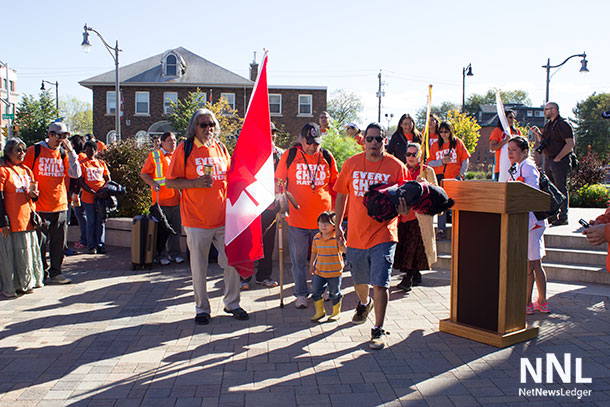Orange Shirt Day, observed annually on September 30th in Canada, holds profound significance in the country’s history and ongoing journey towards reconciliation. This day is dedicated to remembering the painful legacy of the Residential School system and its lasting impact on Indigenous communities. It serves as a reminder of the need for healing, understanding, and taking concrete steps towards addressing the intergenerational trauma caused by this dark chapter in Canadian history.
The History of Orange Shirt Day
The origin of Orange Shirt Day can be traced back to the experiences of Phyllis Webstad, a survivor of the St. Joseph Mission Residential School in British Columbia. In 1973, when she was just six years old, Phyllis had her new orange shirt taken away on her first day at the school. This traumatic event left an indelible mark on her, symbolizing the loss of identity and culture that many Indigenous children suffered in these institutions. The color orange became a poignant symbol of this shared history.
In 2013, Phyllis Webstad shared her story, and her experience inspired the creation of Orange Shirt Day by the St. Joseph Mission Residential School Reunion Committee. The day was officially recognized by the Canadian government in 2017, becoming a national day of remembrance.
The Legacy of Residential Schools
The Residential School system, which operated in Canada for over a century, forcibly removed Indigenous children from their families and communities, subjecting them to cultural assimilation, abuse, neglect, and deplorable living conditions. These schools aimed to eradicate Indigenous languages, traditions, and identities, causing profound and lasting trauma among generations of Indigenous people.
Intergenerational Residential School Trauma
Intergenerational trauma refers to the transmission of trauma from one generation to the next. For Indigenous communities in Canada, the trauma inflicted by the Residential School system has had far-reaching effects, affecting not only survivors but also their descendants. The trauma is manifested in various ways, including mental health challenges, substance abuse, family breakdowns, and a sense of cultural disconnection.
Addressing Intergenerational Trauma
Efforts to address intergenerational trauma and promote healing are ongoing in Canada. Here are some key initiatives:
- Truth and Reconciliation Commission (TRC): The TRC was established to collect testimonies from survivors and document the history and legacy of Residential Schools. Its 94 Calls to Action provide a roadmap for addressing the impacts of the Residential School system, including recommendations for education, health, and justice system reform.
- Cultural Revival: Indigenous communities are revitalizing their languages, cultures, and traditions, promoting a sense of belonging and identity among their members. Cultural events, language programs, and cultural centers play a crucial role in this revival.
- Mental Health Support: Access to culturally appropriate mental health services is essential for addressing trauma. Many Indigenous organizations and health services offer support tailored to the specific needs of survivors and their families.
- Education and Awareness: Orange Shirt Day, alongside other educational initiatives, raises awareness about the history of Residential Schools, fostering empathy and understanding among non-Indigenous Canadians.
Conclusion
Orange Shirt Day serves as a powerful reminder of Canada’s painful history and the ongoing struggle for healing and reconciliation. The legacy of Residential Schools continues to impact the physical and mental health of Indigenous people, but through initiatives like the TRC, cultural revitalization, and mental health support, progress is being made towards addressing intergenerational trauma. It is incumbent upon all Canadians to engage in these efforts, as we collectively work towards a more just and inclusive future, where the scars of the past are acknowledged and healed.






